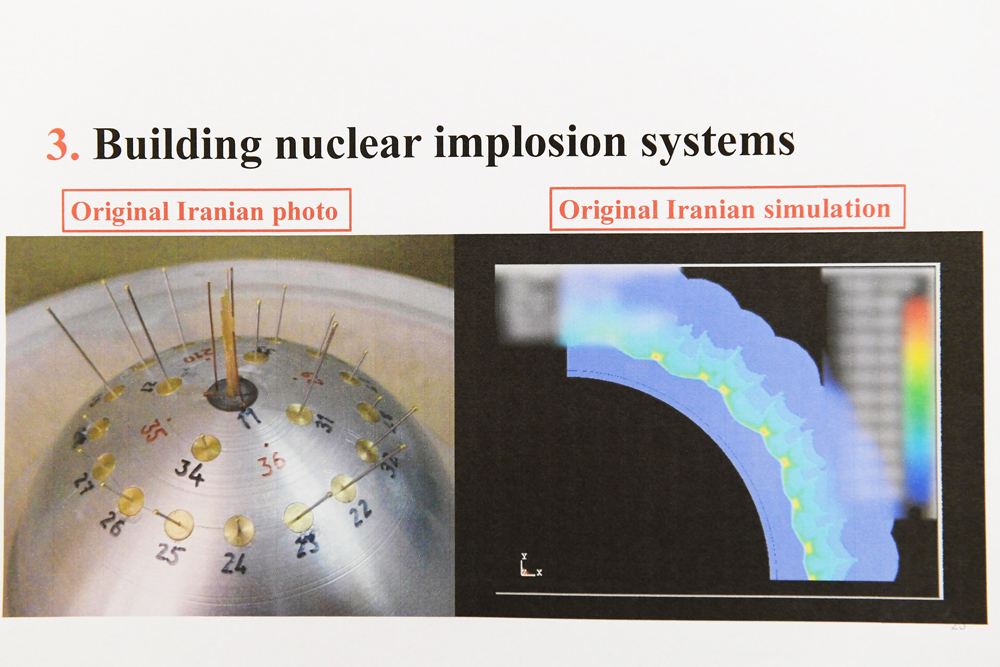The picture of Israeli Prime Minister Benjamin Netanyahu standing before two displays, one of file folders and one of compact discs, symbolizes possibly the greatest coup in the history of espionage: the Mossad's acquisition of the archive of Iran's program to create nuclear weapons. A runner up for that title might be the advance information about Operation Overlord, the Allied landing in France at the end of World War II, supplied by Elyesa Bazna from Ankara and Paul Fidrmuc from Lisbon.
Nazi Germany failed to act on that information about the intended landing site on D-Day. Instead, it fell victim to false information provided by a supposed spy who was working for the Allies. The parallel to that failure is the present rush of politicians and so-called experts who pretend that the Mossad's coup tells us nothing new and merely proves that the deal is more justified than ever. They claim, in particular, that before the deal was agreed the International Atomic Energy Agency (IAEA) already knew the broad details of what the new information reveals.
What the assorted apologists for the Iran nuclear deal have failed to grasp is a simple distinction: the difference between suspicions and confirmation. The IAEA based its assessments on "over a thousand pages" of documents; now we have a hundred thousand.
Moreover, these are in effect a hundred thousand signed confessions of the Iranian regime that it intended to create nuclear weapons and load them on missiles manufactured by itself. The miniature minds of the apologists are simply incapable of grasping the historic magnitude of the Mossad's discovery.
 Pictured: Two images from Iran's secret nuclear archive, as presented publicly by Israeli Prime Minister Netanyahu on April 30, 2018. In possibly the greatest coup in the history of espionage, Israel's Mossad acquired over 100,000 documents from the archive of Iran's program to create nuclear weapons. (Photo by Israel GPO) |
Apart from Netanyahu himself, the most significant individual who understands that magnitude is President Trump. In February 2018, Trump informed the three European countries involved in the Iran deal about the defects that he wanted corrected in order to continue to certify the deal. As Reuters reported at the time:
"Trump sees three defects in the deal: its failure to address Iran's ballistic missile program; the terms under which international inspectors can visit suspect Iranian nuclear sites; and 'sunset' clauses under which limits on the Iranian nuclear program start to expire after 10 years. He wants all three strengthened if the United States is to stay in the deal."
The Mossad's coup has turned Trump's three proposals into three imperatives, not just to the Europeans but also to the two other states involved in the deal: Russia and China. (Russia, in particular, must grasp that major Russian cites are within missile range from Iran.) That is, if the deal is to survive, the sunset clauses must be cancelled, the IAEA must have freedom to inspect whatever it demands, and Iran's long-range missile capacity must be curtailed. This is because the Mossad has also supplied us with a hundred thousand signed confessions that the Iranian regime will resume and complete its plans for nuclear-armed missiles as soon as the deal permits it -- indeed authorizes it -- to do so.
Malcolm Lowe is a Welsh scholar specialized in Greek Philosophy, the New Testament and Christian-Jewish Relations. He has been familiar with Israeli reality since 1970.


